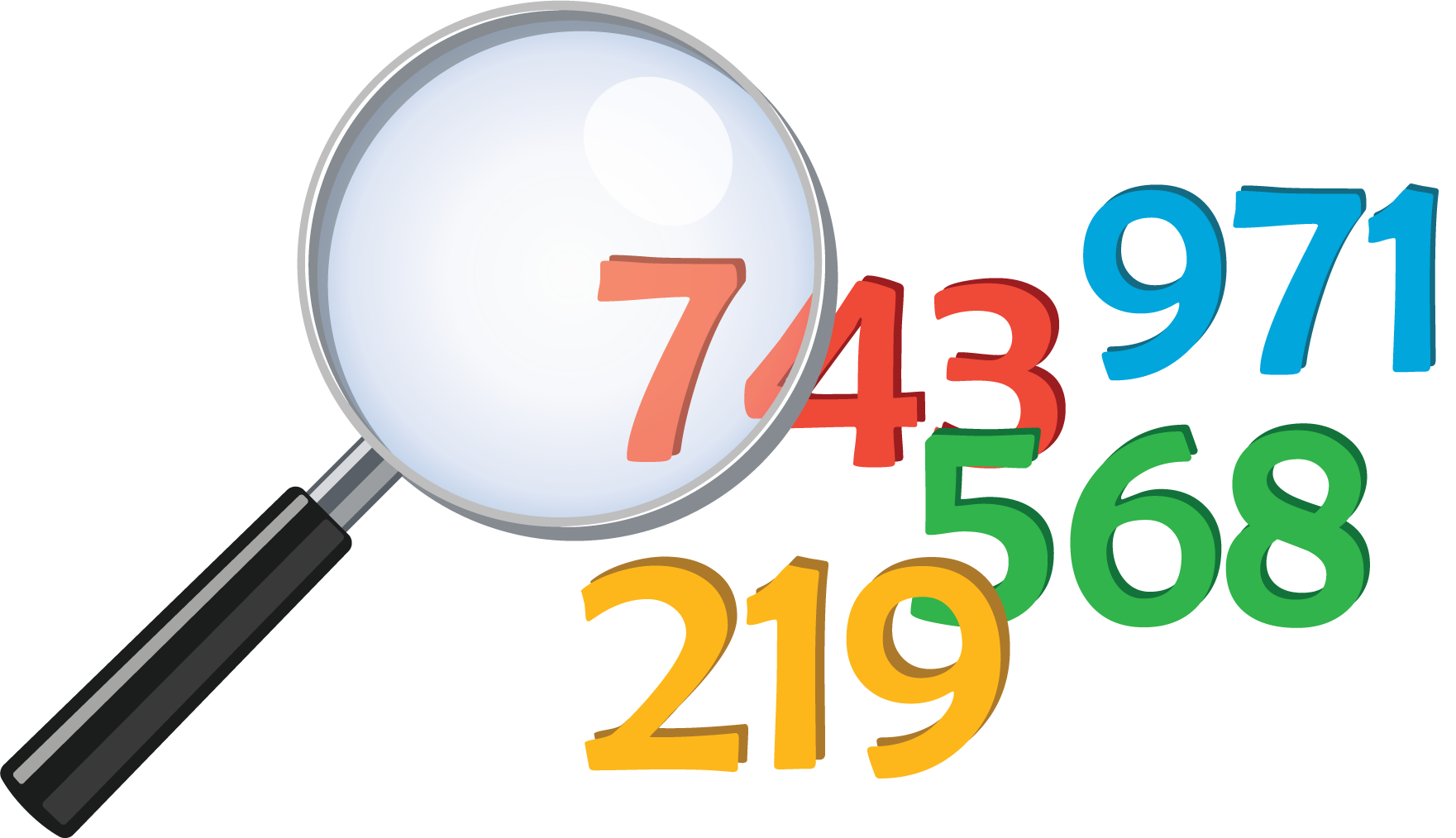Lesson 7
Center Day 1 (optional)
Warm-up: True or False: Compare to 100 (10 minutes)
Narrative
Launch
- Display one statement.
- “Give me a signal when you know whether the statement is true and can explain how you know.”
- 1 minute: quiet think time
Activity
- Share and record answers and strategy.
- Repeat with each statement.
Student Facing
Decide if each statement is true or false. Be prepared to explain your reasoning.
- \(100 > 99\)
- \(100 < 99 + 1\)
- \(98 + 3 > 100\)
- \(50 + 50 + 50 > 100\)
Student Response
For access, consult one of our IM Certified Partners.
Activity Synthesis
- “How did you know that \(100 < 99 + 1\) was false?” (99 plus 1 more is 100. When we count, 100 is the next number. They are equal.)
Activity 1: Introduce Mystery Number, Three-digit Numbers (15 minutes)
Narrative
The purpose of this activity is for students to learn stage 2 of the Mystery Number center. Students pick 3 cards and make a mystery three-digit number. Students give clues based on the sentence starters and their partner tries to guess their number. Students should remove cards that show 10 from their deck. When they give clues and guess the number, students demonstrate understanding of the base-ten system, both the meaning of each digit in a number and the order of the numbers (MP7).
Required Materials
Launch
- Groups of 2
- Give each group a set of number cards and directions.
- “We are going to learn a new center called Mystery Number that you might have played in first grade. You will pick 3 cards and make a mystery three-digit number. Then you will give your partner clues and they will try to guess your mystery number.”
- “Read the directions with your partner to see if you have any questions.”
- Answer any questions or play a round against the class to demonstrate the center.
Activity
- 15 minutes: partner work time
- Monitor for clues to share during the synthesis.
Activity Synthesis
- “What types of clues were particularly helpful to you when you were trying to guess your partner’s number?”
Activity 2: Centers: Choice Time (20 minutes)
Narrative
The purpose of this activity is for students to choose from activities that focus on addition or subtraction. Students choose from any stage of previously introduced centers.
- Jump the Line
- Mystery Number
- Number Puzzles
Required Materials
Materials to Gather
Required Preparation
Gather materials from:
- Jump the Line, Stage 1
- Mystery Number, Stage 2
- Number Puzzles, Stages 2–4
Launch
- “Now you will choose from centers we have already learned. One of the choices is to continue with Mystery Number.”
- Display the center choices in the student book.
- “Think about what you would like to do first.”
- 30 seconds: quiet think time
Activity
- Invite students to work at the center of their choice.
- 10 minutes: center work time
- “Choose what you would like to do next.”
- 10 minutes: center work time
Student Facing
Choose a center.
Jump the Line

Mystery Number

Number Puzzles

Activity Synthesis
- “What did you like about the activities you worked on today?”